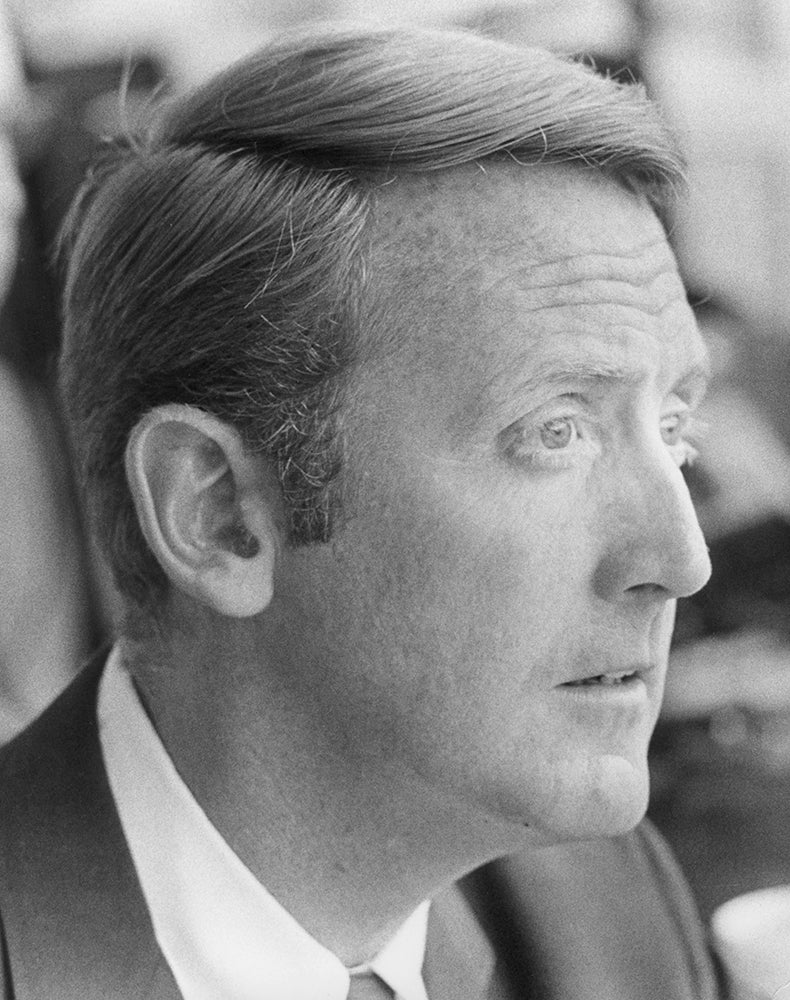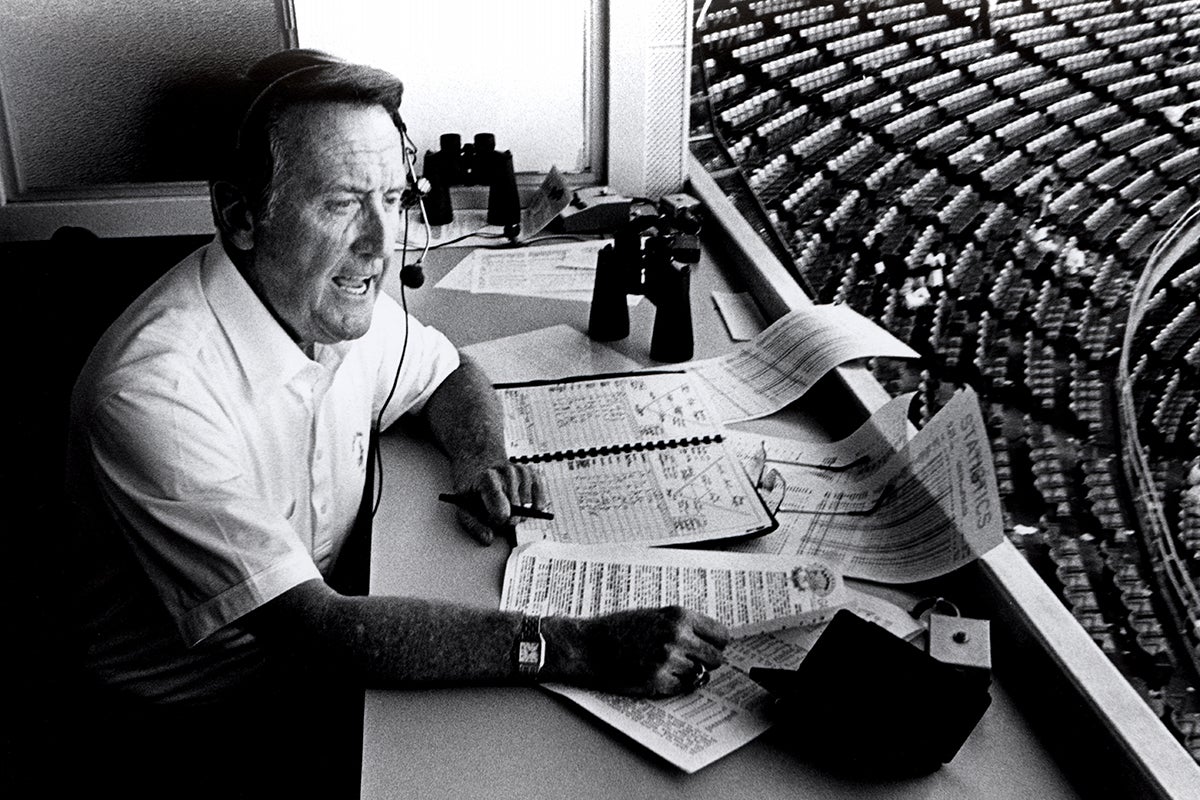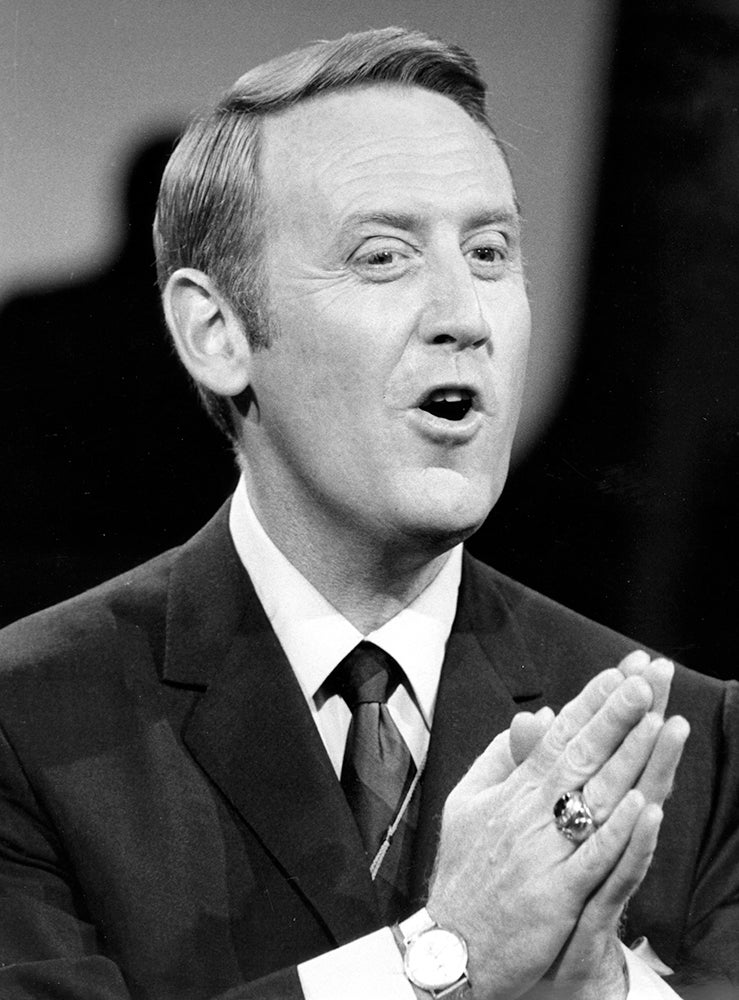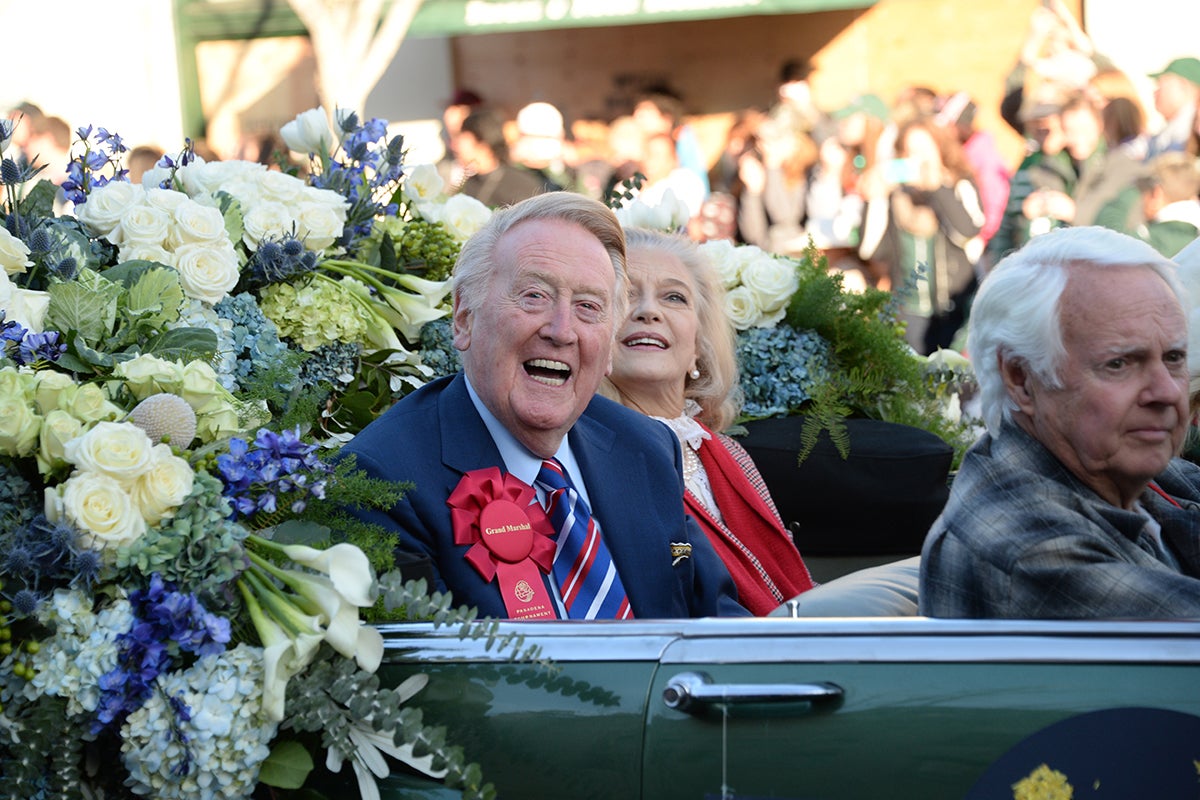#GoingDeep: Vin-Describable
Vin Scully, by near total acclamation, is considered baseball’s greatest broadcaster. But in the midst of his remarkable diamond career, he made attempts to diversify – to mixed results – with a talk show, a game show and play-by-play in several other sports.
In providing the “Soundtrack of Summer” for so many Dodgers fans, both in Brooklyn and Los Angeles over the decades, Scully became to many the face and voice of the franchise before retiring after the 2016 season. In its remarkable totality, with his gift for storytelling and ability to turn a phrase, he spent 67 seasons behind a microphone broadcasting the National Pastime.

Scully’s debut began 75 years ago, in 1950, with the 22-year-old Fordham University graduate in the Brooklyn booth, then continued in Los Angeles when the Dodgers made their historic trek to the West Coast after the 1957 campaign.
Already a household name in Southern California thanks to baseball, Scully’s was about to reach a new audience when it was announced in February 1969 that he would be hosting a new weekday game show, It Takes Two, beginning the next month. He had previously served as the unseen narrator in the 1966-67 sitcom Occasional Wife.
“I’d like to try it,” Scully told the Los Angeles Times, “Just to see if I can do it. So, if the time comes when I want to call it a career with the Dodgers, I’d have something else to do.
“But it doesn’t mean I’m thinking of leaving the Dodgers immediately.”
The morning program called upon members of the studio audience to second-guess the judgement of three married couples, each consisting of a celebrity and his or her spouse.
Among the celebrities were Michael Landon, Dom DeLuise, Milton Berle, Leslie Nielsen, Annette Funicello, Dick Clark, Eva Gabor, Rod Serling, Dionne Warwick, Betty White, Suzanne Pleshette, Groucho Marx, George Carlin and Lily Tomlin.
“After 20 years in baseball,” Scully said, “this is my chance to find out if this can be a new career. But let me make one thing clear – my first obligation is to (Dodgers owner) Mr. (Walter) O’Malley. He’s a second father to me.
“I don’t ever want to lose sight of the fact I’m obligated to the team. If the Dodgers think that my work for them is falling off because of outside activity, they will have the right to say give it up. I’m going to protect the people who brought me along for 20 years.”
According to Scully, who estimated that counting exhibitions he had called something like 4,000 games at the time, It Takes Two was designed for young housewives in the 18-35 bracket and preschool children.
“I play it straight, just as if I were describing a ballgame,” he said. “I don’t play particularly to women. I try to keep the show rolling, keep it amusing, light.”
Scully admitted it’s tough doing two jobs at once.
“We have to tape 25 shows in 14 days while the Dodgers are in town to carry us over when the club hits the road,” he said. “That’s the reason I’m doing it, you know. I want to get off the road. I want to get off the baseball wheel.
“Don’t get me wrong. This is my 20th year broadcasting baseball – and I love it as much as the day I started. But the road gets me down. Those endless days in hotel rooms in Cincinnati or Atlanta or St. Louis. I have three children – Mike is 9 and Kevin 7 and little Erin 7 months. I want to watch them grow up…Maybe this is a way to earn a living and stay home. At least, that’s my goal.”
In a December 1969 Los Angeles Times column by Jim Murray, 1987 recipient of the BBWAA Career Excellence Award, he put Scully’s year in perspective.
“He did 190 baseball games and 165 full network TV shows last year. He was either on a mic or on an airplane, calling a game or emceeing one,” Murray wrote. “Fortunately, the Fordham Thrush has a .400 larynx. He doesn’t even take cough drops.”
“I’m trying to show I can say something besides ‘ball two, strike one,’” explained Scully to Murray. “I love baseball, but I hate hotel lobbies.”
In June 1970, Scully told a newspaper reporter a poignant family story about his need to ultimately spend more at home.
“Once last year,” Scully said, “I came home after a long road trip. And my son, Mike, who was 9 years old at that time, said he wanted to talk to me privately. So, we went into the rec room and I said, ‘Okay, Mike, what’s on your mind?”
“‘Nothing, Dad,’” he said. “I just had to be with a man for a while.’”
In the same article, Scully did express an interest in doing a talk show, adding: “I feel I have something of the (Art) Linkletter quality. But I’ve done so many interviews that I think I can add a little bit of the (Dick) Cavett and (David) Frost quality, too.”
It Takes Two was ultimately cancelled, the last of its 345 episodes airing July 31, 1970. But less than three years later he got his wish when it was announced that he would be hosting The Vin Scully Show, a 30-minute weekday afternoon talk-variety show on CBS, beginning Jan. 15, 1973.
The Vin Scully Show’s first week’s lineup included actor Walter Matthau, comedienne Phyllis Diller, composer Burt Bacharach and wife Angie Dickinson, actor Ernest Borgnine, and Laugh-In hosts Dan Rowan and Dick Martin.
“The Vin Scully Show absolutely will not be a sports program,” Scully said at the time. “It will be talk-variety, with the emphasis on the top talent from the world of show business. No one even resembling an athlete will be on the show. In fact, we won’t even let anyone with athlete’s foot on.
“Certainly, baseball fans have heard of me, but how many diehard baseball fans are we likely to find in the 18-35 age group among women? The average housewife would never be tempted to turn on The Vin Scully Show, but she might turn it on if the blurb in the TV magazine read The Vin Scully Show featuring Walter Matthau, Carol Burnett or an equally well-known personality.”
Asked how it was possible to do a talk show and Dodgers games as well, Scully responded, “We plan to tape two to three weeks ahead and since most road trips seldom last longer than 10 days, we should have no trouble there at all.”
A family tragedy, though, made this attempt at expanding his future options much more imperative.
“I lost my wife a year ago and there are three young children at home who are in desperate need of a father who can spend a good deal of time with them,” said Scully, referring to the passing of his wife, Joan Crawford, in 1972. “Frankly, I want to get off the road…I am hoping this show might put me in a position where I will never have to travel again. It’s a terrible price to pay for monetary success – traveling.
“Fortunately for me, my boss Walter O’Malley is a family-oriented man who understands what I am trying to do. He has already let me cut down my broadcast chores considerably so that I can be with the kids.”

Variety’s review of the first episode of The Vin Scully Show called it a “debacle.”
“It is clear,” Variety’s review read, “that being a desk-and-sofa pilot is an art with its own internal rhythms and that Scully hasn’t as yet tuned into the tempo.”
During his first month hosting The Vin Scully Show, he explained to a reporter the differences between fronting a game show and a talk show.
“With a game show you’re just a traffic cop. You just see that you get in your commercials and play so many games a day,” Scully said. “This is different. This show has my name. It’s my show. If it fails, well, I failed.
“I can’t say that when I started announcing sports I pictured myself turning to something like this. But if I had to write a scouting report on myself in those days it would have been something like, ‘He does a good ball game, but he has a lot of Art Linkletter and Jack Barry in him.’ I’ve played this role to some degree before.”
The Vin Scully Show, in a daytime television landscape dominated by 16 soap operas and 14 game shows, was cancelled after 50 episodes, its final broadcast on March 23, 1973.

A few years later, in February 1975, it was announced that the 46-year-old Scully had signed with CBS Sports as a reporter on football, golf and tennis while retaining his status as Dodgers broadcaster.
In a sense, Scully would become CBS’ answer to NBC’s Curt Gowdy and ABC’s Howard Cosell: The “name” broadcaster who does all the big sporting events and the person you associate with the network’s coverage the most.
Scully’s agent, Ed Hookstratten, said the CBS package would not affect Scully’s work with the Dodgers. “Vin will be supplementing his baseball work, not detracting from it.”
Asked by the LA Times why he wants to work so hard, Scully replied, “It’s like John McNulty said when he came West to write Hollywood scripts after many years on New York newspapers: ‘The money’s good and there’s no heavy lifting.’
“The only reason I took the sports assignment with CBS is to scout around. It’s an attractive chance to explore the world of the network. Sometime in the near future I have to make a decision whether to stay with the Dodgers or go with the network. I really don’t want to do both. It’s too much. You’re away every weekend during the baseball season, then football follows and then golf in the spring.
“They (Dodgers) know I’m working this year for CBS because I want to get out. But I wouldn’t get out without giving them a good long notice. I could have left them this winter. But I wouldn’t do that. I couldn’t say, ‘Get yourself another guy,’ just like that. I’d give them at least a year’s notice.”
Television networks had made offers to Scully before but none that really appealed to him.
“This time, CBS came to me and said, ‘Hey, how about this? How’d you like to do the (Rod) Laver-(Jimmy) Connors tennis match, the CBS Tennis Classic, the Masters, the Heritage Open, then eight or 10 football games?’ It was a real package,” Scully said. “It sounded interesting, exciting, stimulating, challenging, rewarding, whatever the word is. I said, ‘Okay, I’ll try it.’ It’s been a good experience, but I don’t know whether I’ll continue doing it.”
Broadcasting football was a relatively new endeavor for Scully, but he put in the work needed to succeed.
“I’m a firm believer that what we’re doing in this business is describing people in motion,” he said. “So, it doesn’t make any difference to me whether it’s a Rose Parade or a football game or a baseball game or tennis or golf or whatever the hell it is. You’re basically just reporting on people who are moving.”
“I really hadn’t applied myself to football at all. When I took this job, the players were all unknown to me.”
His time at CBS also included a co-hosting stint in the mid-1970s of Challenge of the Sexes, a series that pitted men and women against each other in various sports from tennis to bowling.
Later came a celebrity version of Challenge of the Sexes with such stars such as Farrah Fawcett-Majors, Tony Randall, Connie Stevens, Flip Wilson, Gabe Kaplan, Robert Conrad, Penny Marshall, Redd Foxx, Edward Asner and Elliott Gould.
“It was somewhat difficult for me to adjust to,” Scully said. “I was raised on the World Series and championship football games. But once I took the tack of it’s just people having fun, I got into it.”
It was reported in 1976 that Scully might leave the Dodgers entirely and concentrate solely on his CBS work.
“I can’t continue to do both, the Dodgers games and the network assignments, fulltime. This may be my last year I’ll do the Dodgers games,” he said. “I’ve enjoyed working for the network very much. I took the job because I wanted the challenge. I’ve been with baseball so long, and, at this stage in my life, I felt I’d like to try it.
“I won’t miss the two-week road trips and the dawn arrivals. I’ve spent more than half my life doing baseball games. For 25 years, I’ve ducked work.”
A compromise was worked out, though, allowing Scully to work baseball on a limited basis.
“Of course, because of my many years with the Dodgers, my heart is always with them,” Scully said. “But when I’m on another assignment, my mind is totally on that assignment. I have to block the Dodgers out.”
Scully left CBS at the end of 1982 – the year he won the National Baseball Hall of Fame’s Ford C. Frick Award for broadcasting excellence – and signed a contract with NBC Sports, where he would become the network’s top baseball broadcaster and work about a half-dozen golf tournaments as well as continuing his Dodgers career.
“I basically wanted the challenge because nobody thought I could call a credible football game,” Scully explained. “I didn’t care about that; I did it to prove something to myself. I quit in 1982 after a fantastic playoff game between the San Francisco 49ers and the Dallas Cowboys.”
Scully’s tenure with network television ended after 15 years with CBS and NBC in January 1990.
“I enjoyed working for NBC, but I love my wife and children more,” said Scully, who married his second wife, Sandra Hunt, in 1973. “They wanted me to host about 14 golf tournaments. And when I got to thinking about it, each tournament now runs with cable, and that means about five days away from home. Multiply five times 14 and all of a sudden you’re on the road another two-and-a-half months of the year.
“I just wanted to do a partial schedule. It’s not something they were looking for, and that’s fine. NBC has been great for me. I’ll miss them. I really loved working for those guys. But I still have the best job in sports (with the Dodgers).
“NBC couldn’t give me the one thing I wanted: Time.”

Curt Smith, author of the 2010 biography “Pull Up a Chair: The Vin Scully Story” said there was a time in the late 1960s when the subject of his book was beginning to look at other things.
“He was always cognizant that the meter is running,” Smith said. “But even by that time he was already recognized, it seems to me, as the best there ever was.
“There’s a Red Barber quote from the 1970s: ‘In my opinion, Scully is the best baseball announcer we have, and one of the best in football and golf.’ So, it was interesting how easily he was accepted in a role outside of baseball. And he showed himself, particularly with golf, to be a student of the game.”
“There’s certainly never been anyone quite like him.”
Scully passed away on Aug. 2, 2022, at the age of 94.
Bill Francis is the senior research and writing specialist at the National Baseball Hall of Fame and Museum
